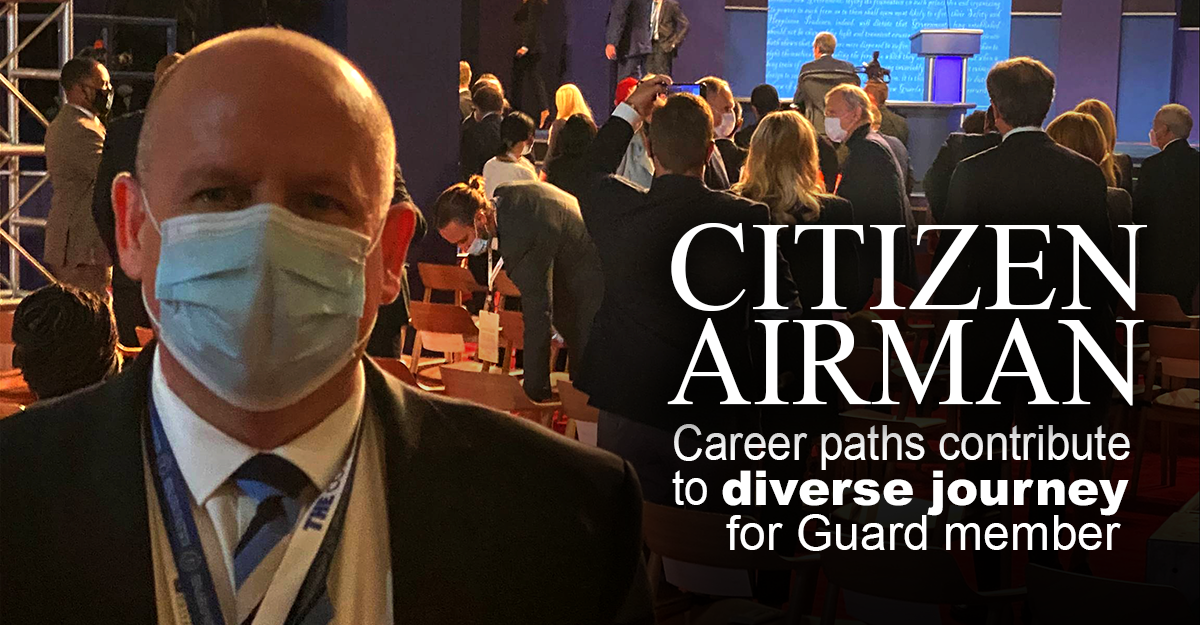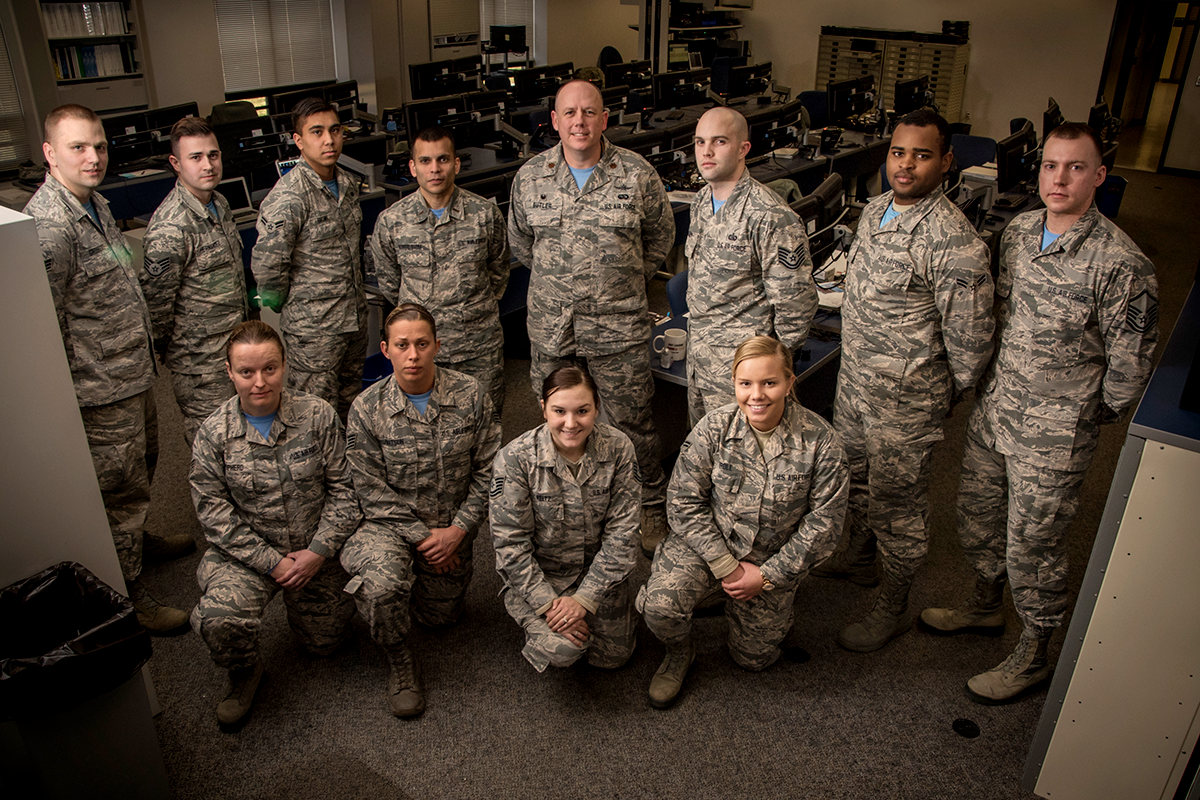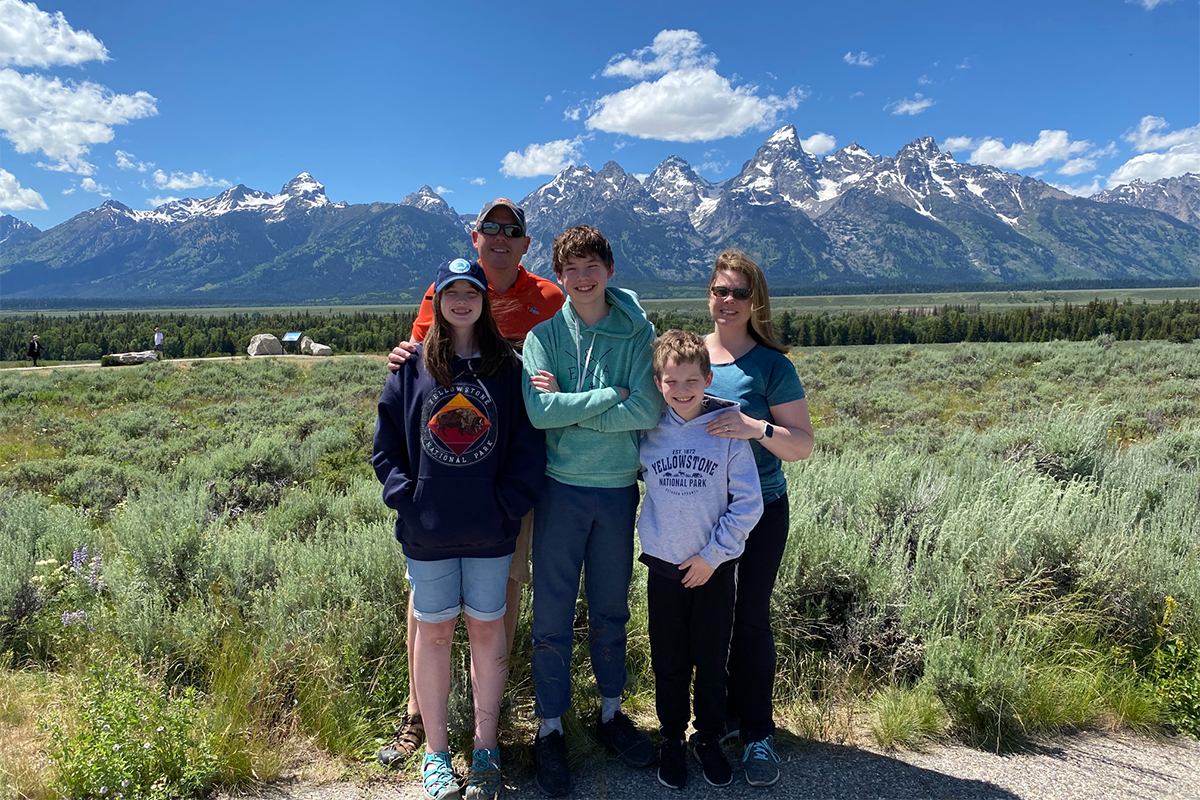Citizen-Airman
Career paths contribute to diverse journey for Guard member
Story by Capt. Jordyn Craft, Ohio National Guard Public Affairs
COLUMBUS, Ohio (3/2/21)
From a young Soldier playing the flute in the band, to an experienced Airman responding to the COVID-19 pandemic, to a civilian leading cybersecurity for a presidential debate, Lt Col. Thomas Butler’s career, both civilian and military, is something movies are made of.
“I owe everything I have today to the Guard, and that is not hyperbole,” said Butler, a traditional Guard member and father of three, who currently serves as the deputy director of joint communications at Joint Force Headquarters-Ohio, located at the Maj. Gen. Robert S. Beightler Jr., Armory in Columbus. “Twenty five years ago, I joined only to pay for college and, somewhere along the line, things changed for me.”
It’s hard to determine the exact point in his diverse career when things did change for him, but it starts in 1996 when he joined the Ohio Army National Guard as a flutist in the 122nd Army Band. A geology student who only planned on serving six years to help fund his education, was forever changed after the horrific events of 9/11, which inspired him to not just re-enlist, but become a commissioned officer, altering the course of his future.
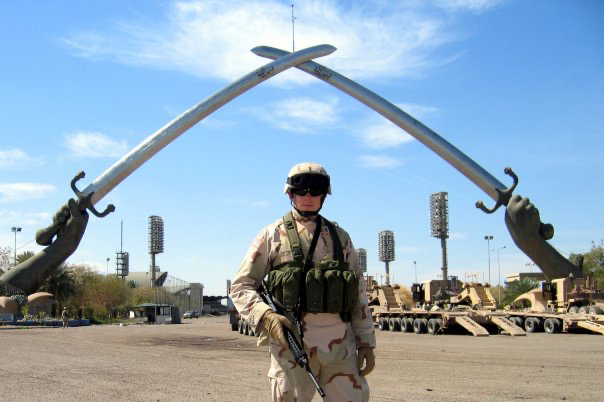
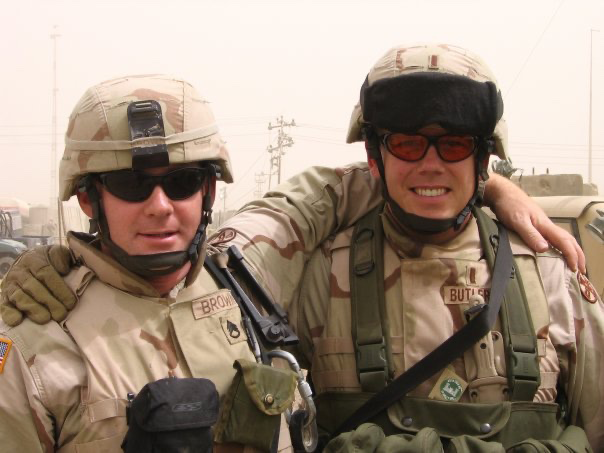
Intensity of Iraq deployment
leaves lasting impression
As a new Army National Guard officer, 2nd Lt. Thomas Butler deployed to Iraq in 2005 as a platoon leader with the Ohio Army National Guard’s 612th Engineer Battalion and was responsible for the lives of more than 30 Soldiers. Their mission was to conduct counter-improvised explosive device (IED) patrols in Iraq that identified and neutralized roadside bombs. The intensity of that important mission left an adrenaline void when his deployment came to an end, and led him to pursue new interests and career paths, in both his civilian and military lives.
An intense deployment
Between Army officer candidate school and engineer officer basic course, Butler married his college sweetheart, Jean, with whom he now shares three children. The newlywed deployed in 2005 as the platoon leader with the Ohio Army National Guard’s 612th Engineer Battalion and was responsible for the lives of more than 30 Soldiers. Their mission was to conduct counter-improvised explosive device (IED) patrols in Iraq that identified and neutralized roadside bombs. The intensity of that important mission left an adrenaline void when his deployment came to an end.
“After returning home in 2006, I took up hobbies like fishing and hunting, but it never fully satisfied me as counter-IED was always on the top of my mind,” Butler said. “My experience in Iraq allowed me to scratch an itch I didn’t realize I had when it came to hunting big game.”
Looking for new challenges to fuel his passion, Butler transferred to the Ohio Air National Guard’s 200th RED HORSE Squadron. His specialized military experience led to a civilian contracting position that took him back to Iraq, the place that initially piqued his interest in electronic warfare and further developed his budding fascination with information technology. For two years, Butler served as the lead CREW (Counter-Radio controlled improvised explosive device Electronic Warfare) Duke subject matter expert, whose expertise denied enemy groups the use of radio-controlled IEDs, saving countless lives. A CREW Duke is a counter-IED system used to protect against roadside bombs.
A new military path
Butler’s unique experience from both his work as a civilian contractor in electronic warfare and his military leadership as an engineer officer presented a new plot twist taking him down a different military career path, as the 179th Communications Flight commander.
“During my nearly seven years in command at the 179th, I focused on transitioning my team from strictly a service organization to one that provided world-class IT services with a focus on cybersecurity,” Butler said. His forward-thinking shift in focus for the flight paid off, when his team was chosen as the recipient of the Lt. Gen. Harold W. Grant award as the best communications flight in the Air National Guard in 2017, from among 91 other Air National Guard wings.
A pandemic, protests and the presidential election
Every challenge and venture throughout Butler’s career seemed to prepare him for the demands 2020 placed on the National Guard, which saw a global pandemic, historic protests and a controversial presidential election.
In March 2020, Butler received a call, much like the call hundreds of other Ohio National Guard Soldiers and Airmen received, to help his state in the fight against COVID-19. Butler was hand-picked because of his previous years of experience as a combat engineer officer to lead the Northeast Unified Regional Command to help state agencies in northeast Ohio identify possible sites to serve as overflow field hospitals if COVID-19 surged beyond capacity.
“Our training prepares us for moments like this. All across the state I see Soldiers and Airmen doing wonderful things in moments of crisis and, for members of the Guard, it is just another day at the office,” Butler said. “This is why I think the public holds our profession of arms in such high esteem — our passion for service becomes part of who we are.”
Two months after his role in the state’s COVID-19 response, Butler once again received a phone call. This time, it was to support the City of Cleveland, federal and state law enforcement agencies and several hundred Soldiers and Airmen who had been activated to help protect Ohio’s citizens and critical infrastructure following civil disturbances that erupted. For nearly two weeks, Butler worked in the city’s emergency operations center as a liaison to coordinate the Ohio National Guard’s presence in Cleveland.
“It was great to work with and support a professional organization such as the Cleveland Police Department. They were great hosts and even better people,” Butler said. “We helped ensure the rights of our fellow Americans, my own neighbors, to peaceably assemble, a right enshrined to all of us by the Constitution, which drives to the heart of the oath that all of us in uniform take.”
The beauty of the National Guard is that at any given moment, men and women from every corner of the country stand ready to drop everything, grab their uniform, and leave their family and job to answer the call of duty. Butler is just one of more than 400,000 Guard members — from among 50 states, three territories and the District of Columbia — who embody that dedication year after year.
Butler, whose current civilian role as the director of cybersecurity intelligence for the Cleveland Clinic, brings the knowledge and experience from his military role to benefit his day-to-day capabilities. When the Cleveland Clinic signed on to host the first 2020 presidential debate in September of that year, Butler was at the top of the list to lead the cybersecurity efforts during the event. His team was tasked under a short time frame to stand up a separate and secure network specifically created to monitor and thwart possible cyber threats during the debate.
“Through our efforts, our team was able to prevent any major cyber event from occurring to threaten a high-profile event like the presidential debate, which could potentially bring discredit upon the debate hosts, the city, the state and our democracy itself,” Butler said. “Teamwork was critical to our success, and this is something the military develops well, that benefited me during this event — the ability to work together with others to execute Herculean tasks under challenging conditions and short timetables.”
In a year that stretched and challenged members of the National Guard with historic responses month after month, men and women just like Butler continued to step up when called, without hesitation, without complaint, and always ready to sacrifice their time and safety to serve their community, state and nation. Their service continues into the new year, as the National Guard continues to support COVID-19 mitigation efforts in a variety of ways.
If Butler’s life was a movie, the ending credits might tease a sequel — with his combat boots and uniform peeking out from a duffel in the closet as the phone rings. Butler stands ready to answer the next call to duty, whenever that may come, whatever it may be.
